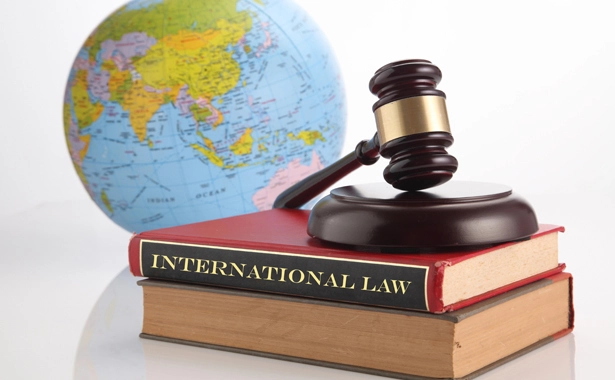Contents
Navigating the complexities of cases under foreign jurisdiction is an essential aspect of modern legal practice. With globalization and international business transactions on the rise, legal professionals frequently encounter scenarios where laws from multiple jurisdictions intersect. This exploration delves into the challenges and nuances associated with handling cases that fall under the purview of foreign legal systems. By examining relevant case studies, legal frameworks, and procedural intricacies, this article aims to provide a comprehensive understanding of how to effectively manage and resolve cases involving foreign jurisdictions, ensuring compliance and successful outcomes.
Fundamental Aspects of Jurisdictions
Jurisdiction refers to the legal authority granted to a court or other governmental entity to administer justice within a defined field of responsibility. It involves the power to make legal decisions and judgments. Here are the fundamental aspects of jurisdiction:
Types of Jurisdictions
Subject Matter Jurisdiction: This is the authority of a court to hear cases of a particular type or cases relating to a specific subject matter. For example, bankruptcy courts have the authority to hear only bankruptcy cases.
Personal Jurisdiction: This is the authority over the persons involved in the legal action. A court needs to have personal jurisdiction over the parties to render a binding judgment.
Territorial Jurisdiction: This is the authority over cases arising within a defined geographic area. It determines whether a court has jurisdiction based on the location where the events in question occurred.
Original Jurisdiction: This refers to the power of a court to hear a case for the first time as opposed to appellate jurisdiction, where a higher court reviews the decisions of a lower court.
Appellate Jurisdiction: This is the power of a higher court to review and revise the decision of a lower court.
Exclusive Jurisdiction: Only one court has the power to adjudicate a case. For example, federal courts have exclusive jurisdiction over federal crimes.
Concurrent Jurisdiction: More than one court can take jurisdiction over the case. For example, some cases can be heard in either federal or state courts.
Principles and Considerations
- Legal Boundaries: Jurisdiction is often determined by legal boundaries, such as state or national borders.
- Minimum Contacts: In personal jurisdiction, especially in civil cases, the court often looks at whether the defendant has “minimum contacts” with the state where the court is located.
- Forum Selection: Contracts often include a forum selection clause specifying which court will have jurisdiction in the event of a dispute.
- Venue: While related to jurisdiction, venue refers to the specific location within the jurisdiction where the case will be heard. It can often be changed for reasons such as convenience of the parties or pre-trial publicity.
Jurisdiction in Different Legal Systems
- Common Law Systems: Emphasize judicial decisions and precedent.
- Civil Law Systems: Rely more on codified statutes and legal codes.
Practical Examples
- Federal vs. State Jurisdiction: In the U.S., federal courts handle cases involving federal law, while state courts handle cases involving state laws. Some cases can be heard in either court.
- International Jurisdiction: Issues can arise when determining jurisdiction across different countries, such as in international business disputes. Treaties and international agreements often help define jurisdiction in these cases.
Understanding jurisdiction is essential because it determines where and how legal disputes can be resolved, ensuring that cases are handled in the appropriate court with the proper authority.
Foreign Jurisdictions
Foreign jurisdiction involves the legal authority exercised by a court or government entity outside of its national boundaries. It encompasses the principles and rules that determine whether and how a country can assert legal authority over foreign individuals, businesses, or activities. Here are the key aspects of foreign jurisdiction:
Types of Foreign Jurisdiction
Extraterritorial Jurisdiction: This refers to the ability of a country to exercise legal control beyond its own borders. It can apply to both criminal and civil matters.
International Comity: This principle involves mutual respect between nations for each other’s laws and judicial decisions, which can influence whether one country’s courts will recognize and enforce judgments from another country’s courts.
Transnational Jurisdiction: This applies to legal cases that involve parties or activities across multiple countries. It often involves complex considerations of different legal systems and international agreements.
Principles and Considerations
- Nationality Principle: A country may exercise jurisdiction over its nationals, regardless of where they are located. This principle often applies in criminal law.
- Territorial Principle: Jurisdiction is based on the location of the offense or dispute. This is the most common basis for asserting jurisdiction.
- Effects Principle: Jurisdiction can be asserted if a foreign conduct produces substantial effects within the asserting country. For instance, a country may claim jurisdiction over a foreign company’s actions that have significant economic impacts within its borders.
- Protective Principle: Jurisdiction may be claimed to protect a nation’s security, interests, or governmental functions from threats posed by foreign activities.
- Universal Jurisdiction: Some crimes are considered so heinous (e.g., genocide, war crimes, piracy) that any country may prosecute the offenders, regardless of where the crime was committed or the nationality of the perpetrators or victims.
Jurisdictional Challenges
- Conflict of Laws: Determining which country’s laws apply in transnational disputes can be complex, requiring courts to navigate conflicting legal principles and regulations.
- Forum Non Conveniens: This doctrine allows a court to dismiss a case if another court or forum is deemed more appropriate for the case, often used in international litigation.
- Recognition and Enforcement of Foreign Judgments: Countries may have treaties or conventions that facilitate the recognition and enforcement of foreign judgments, but without such agreements, it can be difficult to enforce a judgment obtained in one country in another country.
Practical Examples
- International Business Disputes: Contracts involving parties from different countries often include clauses specifying the jurisdiction for dispute resolution, which can include arbitration clauses with designated forums.
- Human Rights Cases: Victims of human rights abuses may seek justice in foreign courts if they cannot obtain redress in their home country, under principles such as universal jurisdiction.
- Cross-Border Criminal Cases: Countries cooperate through extradition treaties and mutual legal assistance treaties (MLATs) to address crimes that cross borders, such as drug trafficking and cybercrime.
Legal Instruments
- Treaties and Conventions: International agreements like the Hague Convention on the Service Abroad of Judicial and Extrajudicial Documents in Civil or Commercial Matters, and the Hague Convention on the Taking of Evidence Abroad in Civil or Commercial Matters, facilitate cross-border legal processes.
- Bilateral Agreements: Countries may enter into specific agreements to address jurisdictional issues, such as tax treaties or trade agreements.
- International Organizations: Bodies like the International Court of Justice (ICJ) and the International Criminal Court (ICC) deal with disputes and crimes involving multiple countries.
Understanding foreign jurisdiction is crucial for navigating the complexities of international law and ensuring that legal processes are respected and enforced across borders.
Foreign Judgement Enforcement
Enforcement of foreign judgments involves recognizing and enforcing a judgment issued by a court in one country within the jurisdiction of another country. This process is crucial in international law, as it allows for the practical execution of legal decisions across borders.
The principles of enforcement of foreign judgments include reciprocity, comity, and adherence to treaties and conventions. Reciprocity means that some countries will enforce foreign judgments if those countries enforce their judgments in return. Comity involves mutual respect and recognition between countries, allowing for the enforcement of foreign judgments as long as they do not violate domestic public policy. Additionally, international treaties and conventions, such as the Hague Convention on Choice of Court Agreements, facilitate the enforcement of judgments between signatory countries.
When deciding whether to enforce a foreign judgment, courts typically consider several criteria: the foreign court must have had proper jurisdiction over the parties and the subject matter of the dispute; the judgment must be final and conclusive, as interlocutory or provisional judgments are generally not enforceable; the foreign judgment must not violate the public policy of the country where enforcement is sought; the judgment must have been obtained through a fair legal process, ensuring due process and impartiality; the foreign judgment must not conflict with any existing domestic judgments involving the same parties and issues; and some jurisdictions require proof that the foreign country would enforce their judgments under similar circumstances, demonstrating reciprocity.
Legal instruments that facilitate the recognition and enforcement of foreign judgments include various Hague Conventions, such as the Hague Convention on the Recognition and Enforcement of Foreign Judgments in Civil and Commercial Matters, which provide frameworks for these processes. Many countries also have bilateral treaties outlining the procedures and criteria for enforcing foreign judgments. Additionally, within the European Union, regulations such as the Brussels I Regulation facilitate the enforcement of judgments across member states.
Jurisdiction for Enforcing Foreign Judgments
The jurisdiction for the enforcement of foreign judgments typically depends on the legal framework of the country where enforcement is sought. Here is an overview of how some jurisdictions handle the enforcement of foreign judgments:
United States
In the U.S., the enforcement of foreign judgments is primarily governed by state law. The process usually involves filing a lawsuit in a state court, where the foreign judgment will be recognized and enforced if it meets certain criteria. The Uniform Foreign-Country Money Judgments Recognition Act (UFCMJRA) or the Uniform Enforcement of Foreign Judgments Act (UEFJA) are often adopted by states to streamline this process.
European Union
Within the EU, the enforcement of foreign judgments is generally governed by the Brussels I Regulation (Recast). This regulation provides that a judgment given in a member state shall be recognized in other member states without any special procedure required. The regulation simplifies the enforcement process by allowing a direct application to the court for enforcement.
United Kingdom
In the UK, the enforcement of foreign judgments is governed by several statutes, including the Administration of Justice Act 1920, the Foreign Judgments (Reciprocal Enforcement) Act 1933, and the Civil Jurisdiction and Judgments Act 1982. After Brexit, the UK is no longer part of the Brussels I Regulation but has agreements with several countries for the mutual recognition and enforcement of judgments.
Canada
In Canada, the enforcement of foreign judgments is handled at the provincial level. The process generally involves recognizing the foreign judgment through a court application. The principles of comity, reciprocity, and the absence of fraud or public policy violations are usually considered.
Australia
In Australia, the enforcement of foreign judgments is governed by the Foreign Judgments Act 1991. The act provides a mechanism for the registration and enforcement of foreign judgments from specified countries. Once registered, the foreign judgment can be enforced as if it were a domestic judgment.
Other Jurisdictions
The process and requirements can vary significantly in other jurisdictions, with many countries requiring that the foreign judgment undergo a review to ensure it meets local standards of justice and fairness.
General Requirements
Common criteria across jurisdictions typically include:
- The foreign court had proper jurisdiction.
- The judgment was final and conclusive.
- The judgment was not obtained by fraud.
- The judgment does not violate public policy.
- Proper notice was given to the defendant.
Courts with jurisdiction for the enforcement of foreign judgments will typically be civil courts, such as district or superior courts, depending on the specific legal system and the amount or nature of the judgment being enforced.
Enforceability of Foreign Judgment Against Third Parties
Enforcing a foreign judgment directly against third parties is generally challenging and involves several legal complexities. Here is a deeper look into the considerations and scenarios where this might be possible or problematic:
Typically, judgments bind only the parties involved in the original litigation. Third parties, who were not part of the original case, are generally not bound by the judgment. Third parties must be given an opportunity to be heard. Enforcing a judgment against them without this opportunity can violate principles of due process and fairness.
Some jurisdictions allow for supplementary proceedings to identify and pursue assets held by third parties that should satisfy the judgment. This can include the examination of third parties under oath. In certain circumstances, creditors can garnish wages or other debts owed to the judgment debtor by third parties. This involves obtaining a court order to seize assets or payments due from third parties to the debtor. Courts may issue attachment orders to seize specific assets held by third parties if those assets are determined to be beneficially owned by the judgment debtor.
Enforcing a judgment against third parties often raises jurisdictional challenges. The enforcing court must have personal jurisdiction over the third party. Third parties can raise various defenses, such as lack of jurisdiction, improper service, lack of involvement in the original proceedings, and substantive defenses like the statute of limitations or public policy concerns. When dealing with international judgments, the complexity increases. Different countries have varying standards for recognition and enforcement, and mutual legal assistance treaties or conventions may be necessary.
Specific Scenarios
Alter Ego or Piercing the Corporate Veil: In some cases, if a third party is found to be the alter ego of the judgment debtor or if the corporate veil is pierced, the courts may enforce the judgment against them. This usually requires proving that the third party and the debtor are essentially the same entity and that the separation was used to perpetrate fraud or injustice.
Successor Liability: If a third party is a successor in interest to the judgment debtor, such as through a merger or acquisition, the court may enforce the judgment against the successor. This typically requires a showing that the successor has taken on the liabilities of the predecessor.
Fraudulent Transfers: If the judgment debtor has transferred assets to a third party to avoid enforcement of the judgment, courts can often unwind these transfers and enforce the judgment against the third party. This involves proving that the transfer was fraudulent.
Steps to Enforce a Foreign Judgment
- Obtain a Certified Copy: The party seeking enforcement must obtain a certified copy of the foreign judgment.
- File a Petition: The judgment creditor must file a petition or application for recognition and enforcement of the foreign judgment in the appropriate court of the country where enforcement is sought.
- Service of Process: The judgment debtor must be properly served with notice of the enforcement proceedings.
- Court Hearing: A court hearing may be held to determine whether the foreign judgment meets the necessary criteria for enforcement.
- Recognition: The court decides whether to recognize the foreign judgment. Recognition means the judgment is accepted as valid within the domestic legal system.
- Enforcement: If recognized, the foreign judgment can be enforced in the same manner as a domestic judgment, allowing for measures such as garnishment of wages, seizure of assets, or other enforcement actions.
Conclusion
In conclusion, effectively managing and resolving cases under foreign jurisdiction is vital in today’s globalized legal landscape, requiring an in-depth understanding of jurisdictional principles, legal frameworks, and enforcement mechanisms. Legal professionals must adeptly navigate the complexities of subject matter, personal, territorial, and foreign jurisdictions, while ensuring compliance with international treaties and conventions. By mastering these elements, they can secure fair and enforceable outcomes across borders, thus addressing the challenges posed by intersecting legal systems and enhancing the administration of justice in international contexts.
Disclaimer: The content provided on this blog is for informational purposes only and does not constitute legal, financial, or professional advice.







